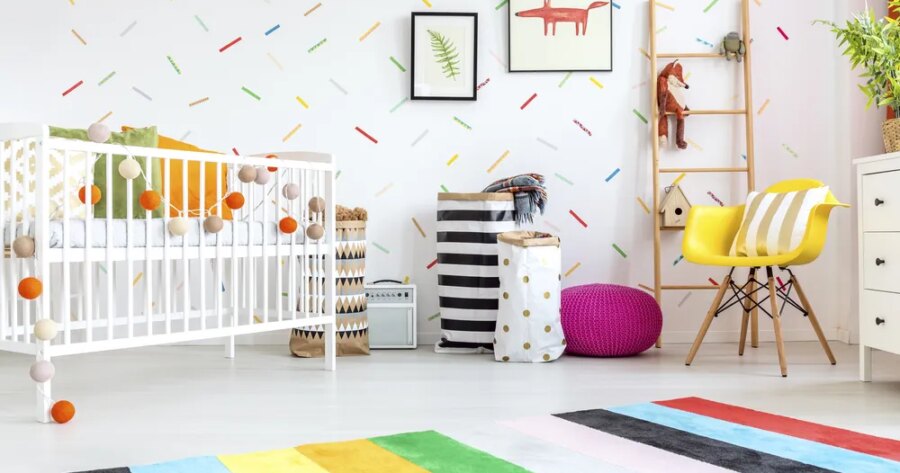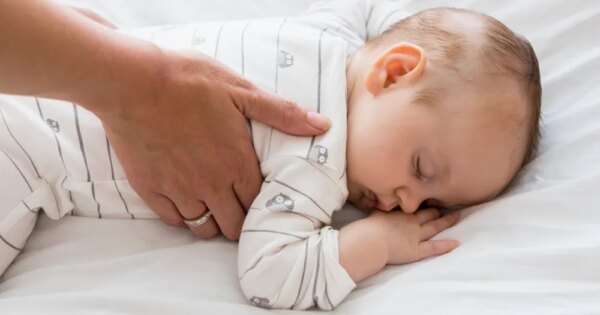Congratulations! You’re going to have a baby! It’s natural to be excited about the birth of a child, and it’s a good idea to be financially prepared too. According to the USDA, the total cost of raising a child born in 2013 until age 17 is $245,340. The average cost of the first year is right around $13,000 — and that doesn’t even include the cost of childbirth [source: USDA].
Fret not. We’ve compiled a list of the top ways you’ll spend money — in general order of cost from low to high — in the first year of your baby’s life. Use this list to prepare and look for ways to save — there are several. Then, you can go back to the fun things like thinking of baby names.
10: Toys
Infants need stimulation — and parents definitely need a way to keep their baby entertained while they cook, clean or, at the very least, take a shower. Toys for a baby’s first year are designed for learning and stimulating the senses. Brightly colored mobiles, with or without music, carefully hung over the crib for your baby to look at and listen to, will be one of your child’s first cherished possessions. As your baby grows through the first year, add soft stuffed animals to cuddle, blocks to build or drop (and sometimes throw, swings for physical exercise, and activity centers with gadgets to turn, grasp, open and close.
Top-of-the-line toys, bought brand new, can be demanding on the old bank account, but many, in very good shape, can be found at kids’ consignment sales or handed down from friends and family. If you’re thinking ahead, you can also add them to your baby registry so family and friends can help make playtime fun for your kid.
9: Furniture and Gear
Whether you go with designer furniture and gear — costing thousands — or look to family, friends and consignment stores to outfit you with gently used items, there are some things that are hard to do without once your baby gets here. Typical items you need when outfitting a nursery are a crib (including a mattress, sheets and blankets), a changing table, a baby monitor, decorative items, a dresser and a rocking chair.
Some things, like a crib and bedding, you will want to get new if possible, so shop sales for these items. Things that don’t get worn out, such as a changing table or dresser, can often be found at garage sales or consignment stores for much less than the cost of new.
A car seat is a must — your baby can’t leave the hospital or birthing center without it. Other gear you’ll want to consider includes a stroller, infant bathtub, and miscellaneous items like nail clippers, washcloths and a diaper bag.
8: Clothing
You may get lucky and have siblings, cousins or friends who pass down clothes, or you may get many of these items at a baby shower. If not, you may get sticker shock if you try to outfit your baby in designer duds from the beginning. Babies are messy creatures, and you can count on having to change clothes a time or two or more every day. They also grow quickly, outgrowing things sometimes before they’ve had a chance to wear them. Some ways to save on the essentials in this never-ending category include shopping at consignment or thrift stores and buying larger sizes than needed at end-of-season sales.
7: Diapers and Wipes
Your little angel is going to go through diapers at a rate you won’t believe — about 10 per day. So, whether you use disposables or cloth, you will literally be throwing a lot of money away every month. And don’t forget, you’ll need to wipe — with one or two wipes every time you change your newborn’s diaper. For disposable diapers or a cloth diaper service, your costs will run about $75 a month. If you use cloth diapers and wash them yourself, figure about $20 per month. Add those wipes, and it’s another $20 or so per month [source: Baby Center Costs].
6: Health Care
Getting your baby into the world is expensive, and so is keeping the child — and his or her mother — healthy afterward. Wellness checks, vaccinations and various (and generally inescapable) childhood maladies all add to the bottom line of baby expenses during the first year. To get an estimate of your expenses, talk to your ob-gyn and pediatrician. Review your health insurance policy to be sure your ob-gyn and pediatrician are in your network. To add to the cost, your health insurance premiums may go up once your little bundle arrives. Check with your insurance company or employer — and don’t forget in all of the excitement of welcoming your new child to add her to your insurance policy when she appears.
5: Insurance and Attorney’s Fees
When you have a baby, suddenly you have someone totally dependent on you in all facets. That dependency doesn’t stop just because you aren’t around or become disabled. Now’s the time to increase your life insurance, consider disability insurance and redo — or do — your will to ensure your baby is cared for if something should happen.
There are many factors to consider when getting life insurance, including income and expenses — both monthly and major — such as college tuition and health care. Talk to professionals who can help you calculate your life and disability insurance needs to ensure your family’s quality of life in the event of the unthinkable.
Having a child is also a good time to redo or do your will. Remember, you’ll want to name guardians for your child or children in the event something happens to both parents.
4: Food and Feeding
Your new little one is going to eat. Whether you breastfeed, bottle-feed or work out a combination of both, there are expenses involved. Breastfeeding itself is free, but you’ll need some accessories, like nursing bras and tops. If you’re planning to go back to work, you may need to buy or rent a breast pump and get bottles.
If you supplement breastfeeding with formula or only feed your baby formula, you can expect to spend up to $100 per month. At about four to six months, you’ll introduce baby food, which can cost another $50 or so per month. You’re also going to need a high chair and many, many bibs [source: Baby Center Costs].
3: Child Care
Child care is one of the most important decisions facing many new parents — and potentially one of the most expensive. Gone are the days when it could be assumed that Mom would stay home with the children or that Grandma or some other relative would be the full-time child care provider.
In fact, today, nearly 11 million children are in child care in America every week — and the cost continues to rise. For infants, the average annual cost of full-time care ranges from $3,930 in Mississippi to $16,430 in Massachusetts. This cost is higher than food, and in 31 states, it’s higher than the cost of a year’s college tuition and fees [source: Child Care Aware].
Research your child care options carefully. The people who care for your children will have an important role in their lives — and yours.
2: Housing
You may not be planning to move to larger digs as you anticipate the birth of a child, but for many parents-to-be, a home or apartment with a dedicated nursery is an important, exciting and fun part of welcoming a new baby. Whether you move or not, housing — including rent or mortgage, utilities and upkeep — is the largest category of child-rearing expenses [source: USDA].
If you decide to upgrade, keep in mind that a larger apartment may mean additional rent every month, a larger up-front deposit and higher utility costs, while the costs of buying and maintaining a larger house could make up an entirely different list.
1: Childbirth
Just bringing your baby into the world can be the most expensive part of the first year of your child’s life. The average cost of childbirth in a hospital ranges from $10,600 for a natural delivery with no complications to $23,900 for a cesarean section with complications. These costs often don’t include anesthesia, newborn care and other physician charges.
With all of the recent health insurance changes, check your health insurance policy before you become pregnant. Premature births, serious complications or a doctor or hospital out of your network can add thousands more to the cost of childbirth, making insurance essential not only for receiving adequate care, but also for paying for it [source: Podulka].



